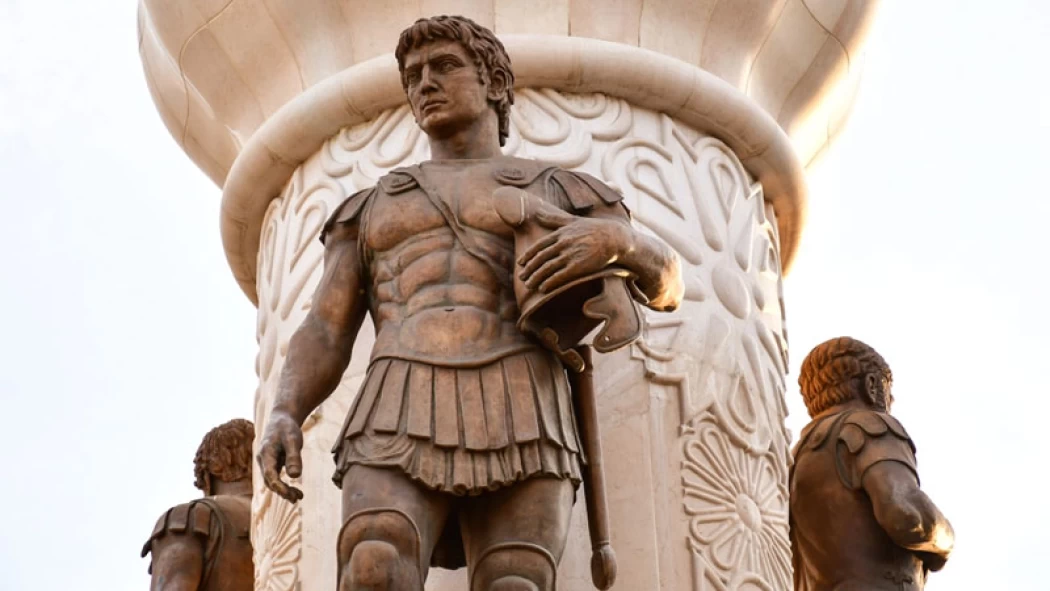- Home
-
Egypt Day Tours
- Cairo Day Tours
- Luxor Day Tours
- Aswan Day Tours
- Sharm El Sheikh excursions
- Hurghada Day tours
- Dahab Day Tours
- Taba Day Tours
- Marsa Alam Day Tours
- Cairo Day Tours from Airport
- Cairo Half Day Tours
- Cairo Overnight Tours packages
- Cheap Giza Pyramids budget Tours
- Egypt Wheelchair Accessible Day Tours
- Cairo Cheap Budget Tours
- Alexandria day tours
- Nuweiba excursiones
- El Gouna Day Tours
- Port Ghalib Day Tours
- Soma Bay Excursions
- Makadi Bay Excursions
-
Egypt Travel Packages
- Egypt Desert Safari Tours
- Egypt Classic Tours
- Egypt Christmas Tours
- Egypt Easter Tours
- Egypt Luxury Tours
- Egypt Nile Cruise Tours
- Egypt Holidays Hot Offers
- Egypt Tour Itineraries
- Cairo Short Breaks packages
- Egypt Wheelchair Accessible Tours
- Honeymoon Tour Packages
- Egypt Cheap Budget Tours
- Egypt group tour packages
- Egypt Luxury Small Group Tours
- Egypt Family Tours
- Egypt and Holy Land Tours
- Egypt Shore Excursions
Latest Articles
-
![Atlas Studios Atlas Studios]()
Atlas Studios
Atlas Studios, also known as Film City, is a well-known film studio in Morocco. It has been used as a filming location for many international movies and TV shows.
-
![Rabat Rabat]()
Rabat
Rabat is the capital city of Morocco, located on the country's Atlantic coastline. It is situated across the Bouregreg River from the city of Salé and forms the Rabat-Salé urban area. With a rich history dating back to the Roman era, Rabat is known for its blend of modernity and traditional Moroccan architecture.
-
![Erfoud Erfoud]()
Erfoud
Erfoud is a city located in eastern Morocco, known as the gateway to the Sahara Desert. It is a popular destination for travelers seeking to explore the stunning desert landscapes and experience the unique culture and hospitality of the region. Erfoud offers opportunities for camel trekking, visits to the nearby Merzouga Dunes, and exploring the local markets and traditional crafts.
-
![Merzouga Dunes Merzouga Dunes]()
Merzouga Dunes
The Erg Chebbi Dunes, also known as the Merzouga Dunes, are a stunning natural wonder located in southeastern Morocco. These majestic dunes stretch as far as the eye can see, with some reaching heights of up to 150 meters. The Erg Chebbi Dunes are a popular destination for travelers looking to experience the beauty of the Sahara Desert.
-
![Khenifiss National Park Khenifiss National Park]()
Khenifiss National Park
Explore the beauty of Morocco's natural reserve at Khenifiss National Park. Located in the southwestern part of the country, this park is home to diverse wildlife and stunning landscapes. Visitors can enjoy hiking, birdwatching, and exploring the unique ecosystems found in the park.
-
![Ouzoud Waterfalls Ouzoud Waterfalls]()
Ouzoud Waterfalls
The Ouzoud Waterfalls, located in the Atlas Mountains of Morocco, are a stunning natural wonder and a popular tourist destination. The falls cascade over a series of rocky cliffs, creating a breathtaking sight and a refreshing mist in the air. Visitors can hike down to the base of the falls, passing by olive groves and encountering local Barbary macaque monkeys along the way.

Alexander the Great
Supporter and propagator of Hellenistic culture, the King of Macedonia, the Pharaoh of Egypt, the hegemon of the Hellenic League, and the Shah of the Persian Empire. He conquered the Persian Empire - from Asia Minor to Egypt, Pakistan, Afghanistan, and India - in 12 years.
Alexander of Macedonia
Alexander III of Macedonia, universally known as Alexander the Great is undoubtedly one of the most famous characters in history. Born in Pella in 356 B.C., he became king of Macedonia in 336 B.C. and was a great conqueror capable of creating a vast empire that went from Macedonia to India.
Alexander the Great died at the age of 33 in 323 B.C. after a lifetime of conquests. His great courage and his legendary deeds inspired politicians and historians to record his ambitious journey throughout history.
Politically and militarily he was educated by his father (Philip II - king of Macedonia from 359 B.C. and conqueror of Greece in 338 B.C.) His intellectual master was instead the Greek philosopher Aristotle, who approached him with the reading of the great Homeric poems and made him passionate about Greek culture by transmitting the idea of the superiority of the Greeks over the barbarian peoples and in particular the Persians.
At just 16 years old, following an absence from his father, Alexander the Great gained the regency of the Kingdom. At 18 he offered his first major military test, fighting bravely in the battle of Chaeronea in 338 B.C., in which the Macedonians defeated the troops of the Greeks. In 336 B.C. Alexander the Great became king of Macedonia after the assassination of his father Philip at the hands of Pausanias, one of his bodyguards.
Alexander's accession to the throne was not easy. Philip's death created government problems and awakened the hopes of independence of Greek cities less willing to accept the authority of Macedonia. It also blocked the expedition that the Macedonian king was setting up to invade Asia and defeat the Persians.
The end of Ancient Egypt began with the invasion lost in 525 B.C. and, in 332 B.C., Alexander the Great occupied the country and founded a new kingdom:
The conquest of Alexander the Great did not find great resistance in the population, on the contrary given the hatred that wound among the Egyptians towards the Persians, the Macedonian king was welcomed almost as a liberator.
Alexander the Great founded Alexandria in Egypt, the capital of the country for several centuries. Upon his death, the government passed to Ptolemy, who transformed Alexandria into a powerful economic center that dominated the trade routes of the Mediterranean Sea and the Aegean Sea. During the Ptolemaic period, the times of Luxor, Aswan, Esna, Edfu, and Kom Ombo were built and Egypt recovered its ancient importance once again. Sin preocuparse de cómo entender los términos clave de la historia egipcia, contaremos con un guía egiptólogo, que responderá a sus preguntas.
Are you looking to explore the city of Alexandria, founded by Alexander, and take in its stunning coastal views? Cairo Top Tours can assist you with that! We have daily excursion options from Alexandria's port to various destinations across Egypt. For more information on these trips, please visit our website. Additionally, we provide a knowledgeable tour guide who can educate you on Alexandria's rich history.
Alexander the Great subdued the Persian Empire and seized vast swathes of land extending from his birthplace of Greece to the northern regions of India. He propagated Greek culture, which influenced language, politics, art, literature, and religion by fusing it with the cultures of the conquered areas.
If you are interested in the history of Egypt, you will learn about the Egyptian civilization, which was full of illustrious characters such as Alexander the Great.
Egypt Tours FAQ
Read top Egypt tours FAQs
Alexander the Great, also known as Alexander III of Macedon, was a famous ancient Greek military leader and conqueror who lived from 356 BC to 323 BC. While he was not Egyptian, his conquest of Egypt in 332 BC had significant contributions and impacts on ancient Egypt. Here are some details about Alexander the Great and his contributions to ancient Egypt:
Conquest of Egypt: In 332 BC, Alexander the Great and his Macedonian army invaded Egypt, which was then under Persian rule. He defeated the Persian governor Mazaces in a swift battle at Pelusium, opening the way for his forces to enter Egypt unopposed.
Foundation of Alexandria: One of Alexander's most significant contributions to Egypt was the establishment of the city of Alexandria. He chose the location strategically on the Mediterranean coast, near the western edge of the Nile Delta. Alexandria would later become one of the most important cities in the ancient world, known for its libraries, scholars, and cultural richness.
Cultural Exchange: Alexander's conquests were accompanied by cultural exchange between the Greeks and the Egyptians. This interaction, known as Hellenization, influenced Egyptian art, architecture, and even the Egyptian pantheon, as Greek deities were often syncretized with Egyptian gods.
Support for Egyptian Religion: Alexander respected Egyptian religion and made offerings to Egyptian gods during his stay. He also visited the Oracle of Amun at the Siwa Oasis, where he was declared the son of the god Amun.
Dynastic Rule: Following Alexander's death in 323 BC, his general, Ptolemy I Soter, took control of Egypt and established the Ptolemaic dynasty. This Greek dynasty ruled Egypt for nearly three centuries, continuing the Hellenization of the country and its cultural fusion.
Library of Alexandria: Under the Ptolemies, particularly during the reign of Ptolemy II Philadelphus, the famous Library of Alexandria was established. It became a center of scholarship, attracting scholars from various parts of the ancient world.
Cultural and Scientific Achievements: The Ptolemaic period witnessed advancements in various fields, including mathematics, astronomy, and medicine. Prominent scholars like Euclid, Eratosthenes, and Hipparchus worked in Alexandria during this time.
Trade and Prosperity: Egypt under the Ptolemies remained a prosperous and economically significant region due to its fertile Nile Delta and strategic location for trade.
Cairo Top Tours Partners
Check out our partners




Copyright © 2024,SeoEra & Cairo Top Tours

-webp.webp)
-(1)-webp.webp)
-webp.webp)
-webp.webp)
-webp.webp)
-(1)-webp.webp)